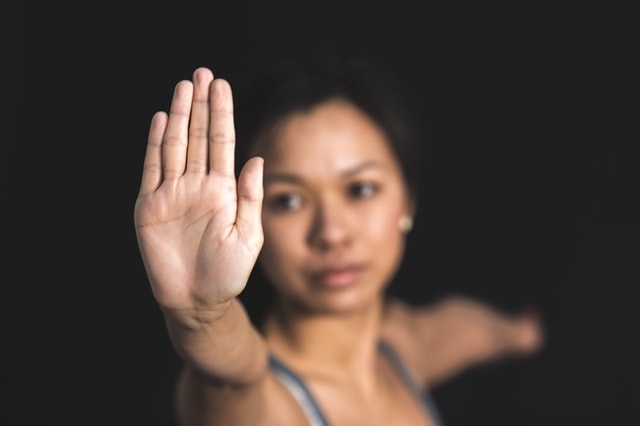Your Yoga Practice: We Really Don’t Know – So Let’s Stop Judging!
I’m guilty. That’s right. I can’t lie and say I’m not.
And not just once or twice, but over and over again.
As a yogi, I’d get to the studio, place my mat, claim my space, and prepare for the session. In time, other yogis arrive, set up their space, and prepare. Eventually, the class begins.
And then IT happens!
What am I talking about?
I’m talking about judging other people based on what I see, based on their appearance.
Why isn’t she doing the posture the “right” way? Why is he not moving his arms at the same time we do? Does this person think they’re special and can do whatever they want?
Same thing as a yoga teacher.
I’d spend the week preparing the sequence for the class. Sometimes, there would be a student struggling to keep up. And off I go again with the questions: Why are they here if they can’t do the pose? Why won’t everybody move together?
But as a yoga therapist, the question is: “Why is it so important?”
I really had to ask myself, “Why can’t I stop judging?”
We don’t know what’s going on in that person’s body. We don’t know if there was a recent injury or something that happened years ago. And we certainly don’t know if they’re just having a frustrating day or if they didn’t get any sleep the night before.
The bottom line is, “we really don’t know!”
A Stunning Moment of Realization
Consider a recent after-class conversation I had with a student about 4 weeks ago.
She’s been coming to an early morning group class I teach. At the time of our talk, she’d been to 4 or 5 classes and was doing fairly well. Everything looking okay from my perspective.
I was thanking her for coming to class as she was leaving, and she turned to me and said: “Thank you. I had a mastectomy and lymph nodes removed from the right side a few months ago. This is helping me better than any time spent in the gym.”
I was stunned. I had no idea!
Nothing from the yogi’s appearance led me to think she was dealing with this. Since there’s only a waiver, there’s nothing in written or in digital form. Nothing. I really didn’t know.
Of course, this is an extreme example, but it underlines that we can never be sure of what is going on with a yogi. We can’t tell what’s going on inside a person. They don’t tell us all the things that are happening. And if they do share, what they tell you may be the end result of something they’ve dealt with, not the cause. Many times, they might not even know what’s at the root of the situation.
So why is it important? It really isn’t!
The things that DO matter are:
It’s important that the student is in class, trying to take care of themselves. They’re the ones who know best what’s happening to them at this moment.
It’s important to give the student space to move and work through whatever they’re feeling. A place of non-judgment where they can be free.
It’s important to treat them as a valued person just like everyone else, no matter how they are struggling. Everybody deserves to be treated equally.
It’s important to remember that appearances are deceiving. That old adage of not judging the book by its cover is not just an old adage, it’s wise advice.
It’s important to understand that sometimes students don’t know what’s happening and have little chance of explaining. It’s just there—we need to stop judging them on it.
We Need to Be Understanding and Stop Judging
Not only have I been guilty of judging in the yoga room, I’ve carried that attitude out into the rest of the world.
Why is that person parking in the handicap spot? Why did that man snap at the cashier in the grocery store? Why would they say something so outrageous? Why is she getting on the airplane early? The list goes on.
What can we do?
In the yoga room, we can try to understand the person and stop judging.
Instead, we can hold space and be supportive. We can be tolerant of and accept what is. We don’t have to force everything into a nice little box just to make ourselves feel better. That only goes so far and doesn’t work over the long-run.
The same can be said once we leave the studio or club. We really don’t know—so let’s stop judging!
I’m going to keep trying. I don’t want to be that person.
I don’t think any of us do.
Namaste

